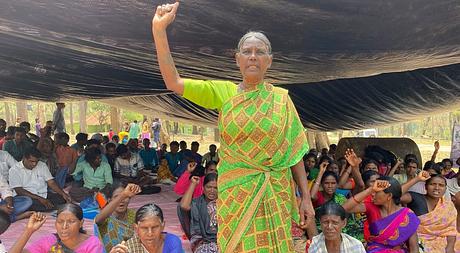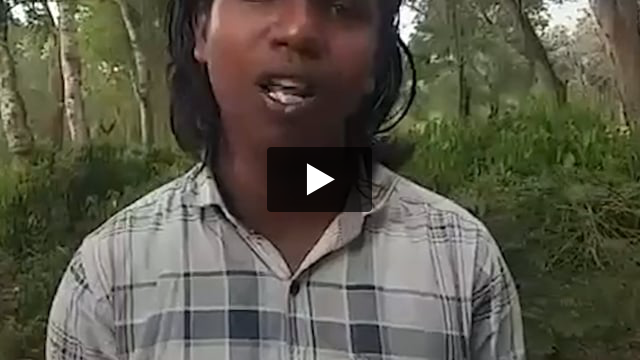Forest guards harass “Kings of the Forest” tribe, risking Covid outbreak
May 13, 2021

This page was last updated in 2021 and may contain language which is now outdated.
Whilst the pandemic rages in India, the Jenu Kuruba tribe are being harassed and threatened for daring to demand their rights to live in their forest – which has been turned into a national park.
Last week, six Jenu Kuruba leaders were charged with serious criminal offences. They are accused of “assaulting and using criminal force” against officials, after a forest ranger tried to stop one of the leaders from repairing his house. The Jenu Kuruba strongly deny any wrong-doing and have lodged a complaint with the police saying that the officials “are not just threatening our lives but have also purposefully filed completely false allegations.”
JK Thimma, who has spoken out against attempts to evict his people from the Nagarhole National Park for many years, has been repeatedly harassed and persecuted for building a house in his village. A recent court judgement recognized his right to build a house in the forest; acquitted him of violations of wildlife laws and said it could not be ruled out that the charges against him were false and in retaliation for his resistance to evictions.
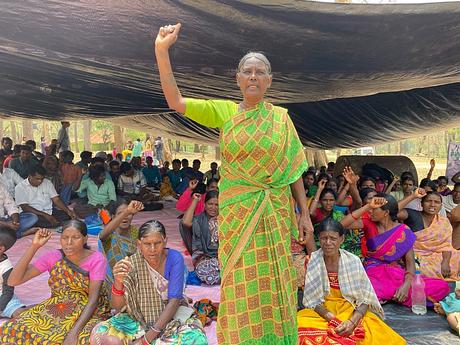
Thimma said, of the latest charges against him and other leaders: “It was because of the protest. They’ve filed cases against us to silence us and put us in jail so that no other voices speak out from the villages. It’s to create fear amongst the tribal people in the forest.”
In March the Jenu Kuruba held a major protest against attempts to evict them and to demand their rights to live in their forest. In response, the local government promised to recognize their rights by the end of May. However, instead of working to meet this promise, the Forest Department is targeting leaders of the protest with false criminal charges, which could see them imprisoned for up to five years.
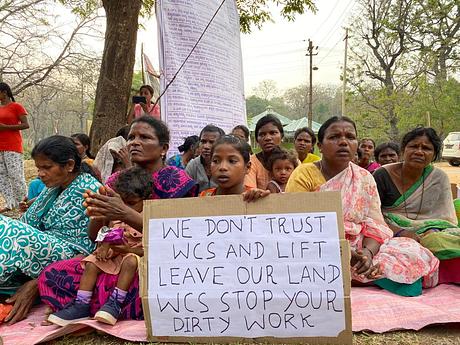
Evictions are carried out by India’s Forest Department but the Wildlife Conservation Society (WCS – the parent organization of the Bronx Zoo) supports them. WCS insists these are “voluntary relocations” which benefit the tribes. Yet communities report that they are forced to relocate; that their quality of life is worse in the relocation sites; and that they want to return to their forest, prompting the US government to halt funding for relocations in the name of conservation.
Increasing international evidence shows that Indigenous peoples are the best conservationists. During the protest the Jenu Kuruba sang songs about the forest and their need to protect it: “We are the people of Nagarhole. We are kings of this forests. This is our motherland and we are her people. Who else other than her children will protect her?”
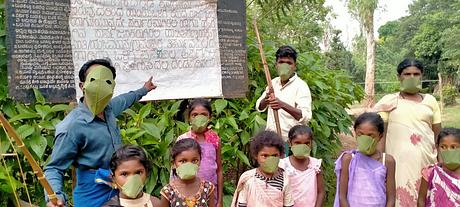
To keep their community safe from Covid, the Jenu Kuruba had erected a barricade with a notice stating that outsiders were banned from entering their village without permission. But this was ignored by more than ten officials, including forest guards and the police, who violated the village’s Covid protection measures, putting the tribe at risk.
Survival’s Senior Research and Advocacy Officer, Sophie Grig said: “It’s scandalous that while the pandemic is devastating India, police and forest officials have endangered the lives of Adivasis [Indigenous peoples] living in the forest, in order to harass and intimidate them in this way. These false cases must be dropped immediately; action should be taken against these officials and the rights of the Jenu Kuruba to live in, manage and protect their own forest must be recognised.”


